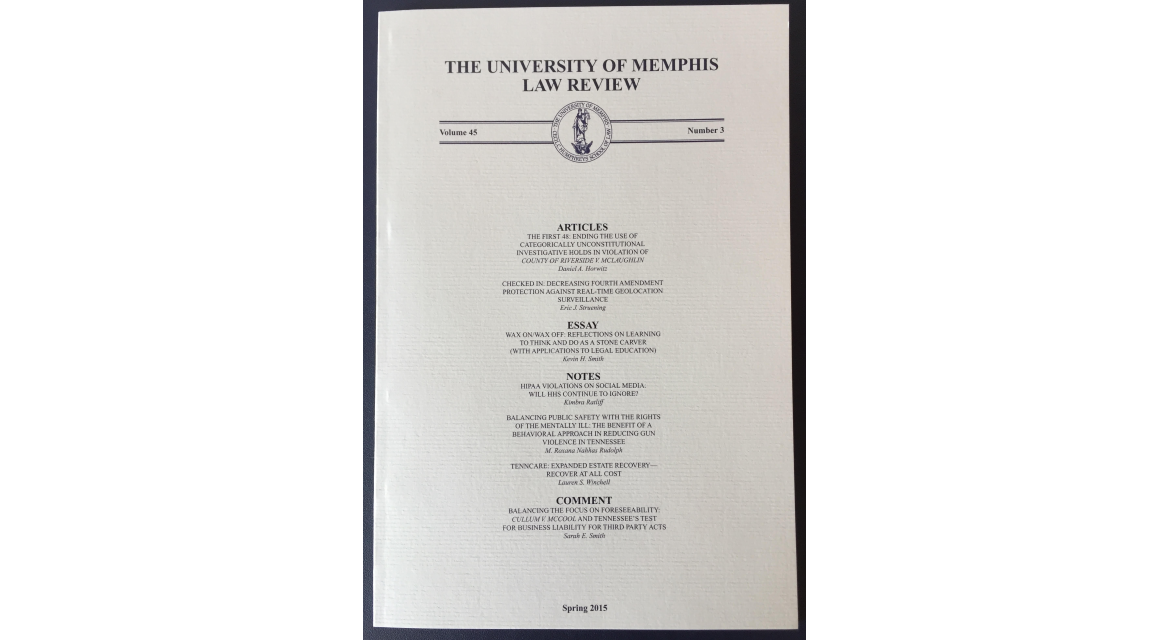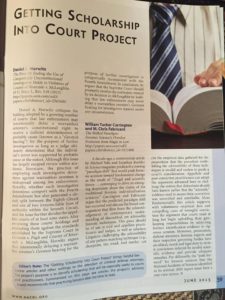Horwitz Law, PLLC Client Kenneth Mynatt Wins Federal Tort Claims Act Appeal, Unanimous Reversal of District Court Order Before the U.S. Court of Appeals for the Sixth Circuit

In a unanimous panel opinion issued on August 12, 2022, the U.S. Court of Appeals for the Sixth Circuit has ordered that Horwitz Law, PLLC appellate client Kenneth Mynatt’s malicious prosecution and civil conspiracy claims against the United States—maintained under the Federal Tort Claims Act—be reinstated and permitted to move forward. The Court’s unanimous ruling, authored by Judge Richard Griffin, sets critical Circuit precedent that presenting false evidence to secure an indictment is not “discretionary” conduct within the meaning of the Federal Tort Claims Act’s “discretionary function” exception.
“The question here is whether presenting false evidence (in testimonial or documentary form) to a prosecutor and then to a grand jury is the type of conduct ‘that the discretionary function exception was designed to shield.’ The answer here is plainly no,” Judge Griffin explains. In so holding, the Sixth Circuit has joined other federal courts in concluding that “[t]here can be no argument that perjury is the sort of legislative or administrative decision grounded in social, economic, and political policy that Congress sought to shield from second-guessing.” In reversing Middle District of Tennessee District Court Judge William Campbell’s contrary ruling, the Panel further “agree[d] with Mynatt that the district court framed the issue incorrectly and erred[.]”
“We are proud to have represented Mr. Mynatt on appeal and to have won him a unanimous, precedent-setting reversal that permits his Federal Tort Claims Act claims against the United States to move forward,” said Horwitz Law, PLLC principal Daniel A. Horwitz, who represented Mr. Mynatt on appeal along with co-counsel Lindsay Smith.
Read the Sixth Circuit’s unanimous ruling in Kenneth J. Mynatt v. United States of America, et al., here. Mr. Mynatt’s briefing in the case and selected media coverage are available below.
Case Documents:
–Principal Brief of Plaintiff-Appellant
–Reply Brief of Plaintiff-Appellant
Selected Media Coverage:
-Bloomberg News: IRS Worker Gets Retaliation Claim Against Feds Revived on Appeal
###
As part of Horwitz Law, PLLC’s appellate practice, Horwitz Law has successfully represented appellate clients in high-stakes, high-profile appeals before the United States Court of Appeals for the Sixth Circuit, the Tennessee Supreme Court, the Tennessee Court of Appeals, the Tennessee Court of Criminal Appeals, the Tennessee Supreme Court Special Workers’ Compensation Appeals Panel, and in administrative agency appeals to Davidson County Chancery Court. Horwitz Law also provides amicus curiae representation in both state and federal appellate courts. If you are seeking appellate representation, you can purchase a consultation from Horwitz Law here.



 Nashville attorney Daniel Horwitz’s Memphis Law Review article: The First 48: Ending the Use of Categorically Unconstitutional Investigative Holds in Violation of County of Riverside v. McLaughlin, 45 U. Mem L. Rev. 519 (2015), has been selected as a “must read” publication by the National Association of Criminal Defense Lawyers’ (NACDL) The Champion magazine and the Getting Scholarship into Court Project. Since its publication, the article (accessible
Nashville attorney Daniel Horwitz’s Memphis Law Review article: The First 48: Ending the Use of Categorically Unconstitutional Investigative Holds in Violation of County of Riverside v. McLaughlin, 45 U. Mem L. Rev. 519 (2015), has been selected as a “must read” publication by the National Association of Criminal Defense Lawyers’ (NACDL) The Champion magazine and the Getting Scholarship into Court Project. Since its publication, the article (accessible